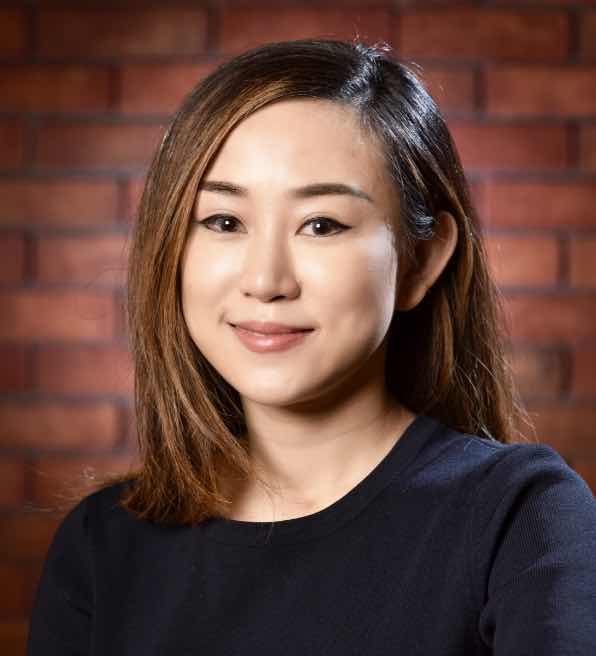Understanding Adult Attention-Deficit Disorder (ADHD)
Table of Contents
What is ADHD?
Attention-Deficit/Hyperactivity Disorder (ADHD) is a neurodevelopmental disorder that can affect both children and adults. While many people associate ADHD with childhood, it can persist into adulthood and manifest in different ways.
Adults with ADHD may struggle with attention, impulsivity, and restlessness, which can impact various aspects of their lives, including work, relationships, and self-esteem. Recognising and understanding ADHD is the first step toward effective management and support.
What Causes ADHD?
Research shows that ADHD often runs in families, which means genetics play a role. Brain chemistry and the way certain areas of the brain develop can also affect how attention, focus, and self-control work.
Life experiences and environments can make a difference too. Stress, big transitions, or early challenges may bring ADHD traits into sharper focus.
Most importantly, having ADHD also means having unique strengths. With the right support, people often discover new ways to use their creativity, energy, and perspective as assets in daily life.
What Are the Different Types of ADHD?
ADHD can present in different ways for different people. Understanding the type can be an important step toward the right strategies and support:
- Predominantly Inattentive Presentation – Characterised by difficulties with focus, organisation, and follow-through. People may appear forgetful, easily distracted, or struggle to complete tasks.
- Predominantly Hyperactive-Impulsive Presentation – Involves restlessness, high energy, and impulsive behaviours. People may have trouble sitting still, waiting their turn, or thinking through consequences before acting.
- Combined Presentation – The most common type of ADHD, showing features of both inattention and hyperactivity-impulsivity.
Situationally Impacted ADHD
Adult ADHD: While often first noticed in childhood, many individuals continue to experience symptoms into adulthood. These may appear as challenges with time management, workplace organisation, or maintaining focus in daily life.
Situationally Impacted ADHD: Symptoms may become more noticeable during periods of high demand or transition, such as starting school, beginning a new job, or facing major life changes.
What Are the Symptoms Associated with Adult ADHD?
Symptoms of adult ADHD can vary widely among individuals, but they generally fall into three categories: inattention, hyperactivity, and impulsivity. Common symptoms include:
Inattention:
- Difficulty focusing on tasks or conversations
- Frequent forgetfulness and misplacing items
- Trouble organising tasks and managing time
- Procrastination and difficulty completing projects
Hyperactivity:
- A sense of inner restlessness or agitation
- Difficulty remaining seated for extended periods of time
- Excessive talking or interrupting others
Impulsivity:
- Acting without thinking about the consequences
- Difficulty waiting for one’s turn
- Making hasty decisions that may lead to negative outcomes
Some individuals with ADHD may primarily exhibit symptoms of inattention, while others may predominantly display hyperactivity and impulsivity. Additionally, some people may experience a combination of both types of symptoms. These symptoms can lead to challenges in personal relationships, work performance, and overall quality of life. Many adults with ADHD may not realise they have the disorder, often attributing their difficulties to other causes.
What Does Treatment for ADHD Look Like?
Treatment for adult ADHD typically involves a combination of medication, therapy, and lifestyle changes. Here’s how our therapists can help:
Cognitive Behavioural Therapy (CBT) is a common therapeutic approach that helps individuals develop coping strategies, improve time management skills, and address negative thought patterns.
Please note, we do not currently offer comprehensive ADHD assessments.
How Do You Know If You’re Ready for Support for Your ADHD?
You don’t have to wait until daily life feels overwhelming before reaching out for support. If you’ve been struggling with focus, organisation, or feeling like you’re always “behind,” help is here whenever you’re ready.
You might benefit from therapy for ADHD if:
Focus and organisation feel like a constant struggle
If keeping track of tasks, deadlines, or routines feels harder than it should, therapy offers a space to understand your unique patterns and build strategies that actually work for you.
You want to feel more in control
ADHD can make life feel chaotic, frustrating, or unpredictable. Support can help you create tools and systems to feel more grounded, while also understanding the emotional side of ADHD.
You’re navigating a big life change
Transitions like starting a new job, managing studies, or taking on new responsibilities often magnify ADHD symptoms. Therapy can help you adapt with clarity, confidence, and self-compassion.
You’re tired of carrying the pressure alone
You may have spent years trying to “mask” or push through ADHD challenges by yourself. Therapy is a place where you don’t have to hide or minimise your struggles, where your experiences are met with understanding, not judgement.
You’re ready to invest in yourself
Seeking support isn’t about “fixing” who you are. It’s about recognising your needs, strengthening your skills, and reconnecting with the parts of you that are capable, creative, and deserving of success.
Meet our therapists specialising in working with ADHD in Hong Kong

Michael Beckham
Clinical Counsellor
Michael Beckham is a US-trained and licensed Psychotherapist with 19 years of experience helping clients navigate life’s challenges with compassion, expertise, and care. He assists his clients in understanding how they see themselves, how they see the world, and how they see their place in the world.
Dr. Christine Mok-Lammé
Clinical Psychologist
Dr. Mok-Lammé is a US trained clinical psychologist licensed in the States of Colorado and Massachusetts. She has worked in the field of psychology in various settings since 2012. She has a wealth of experience working with adults who face difficulties due to complex traumas, challenging family dynamics, and relationship problems.


Dr. Edward C. K. Lam
Clinical Psychologist
Edward is a U.S.-trained and licensed Clinical Psychologist in the state of Massachusetts, now bringing his expertise to Hong Kong. With extensive experience across various settings, Edward has helped clients become stronger, more independent, and resilient in the face of challenges. He creates a supportive and non-judgmental environment where clients can explore their struggles and engage more fully in life.
Dr. Natalie Loong
Clinical Psychologist
Dr. Natalie Loong is a California licensed clinical psychologist with years of experiences working in community mental health, outpatient, residential, and private practice settings in Hong Kong and the United States. As a bilingual psychologist, Dr. Loong provides services in both English and Cantonese and has extensive experiences working with adults, adolescents, and children from diverse cultures.

Meet Our Full List Of Counsellors Here!
FAQs About ADHD in Hong Kong
Can adults develop ADHD later in life?
While ADHD is typically diagnosed in childhood, some adults may not recognise their symptoms until later in life. In many cases, symptoms have been present since childhood but went unnoticed or were misattributed to other issues.
How long does treatment for adult ADHD take to show results?
The timeline for seeing improvements can vary based on the individual and the treatment approach. Some people may notice changes within a few weeks of starting therapy, while others may take longer to find the right combination of treatments that work for them.
Is it possible to manage ADHD without medication?
Yes, many individuals successfully manage their ADHD symptoms through therapy, lifestyle changes, and support systems without medication. However, medication can be an important component of treatment for some people, and it’s essential to discuss all options with your therapist to determine the best approach for your specific needs.




